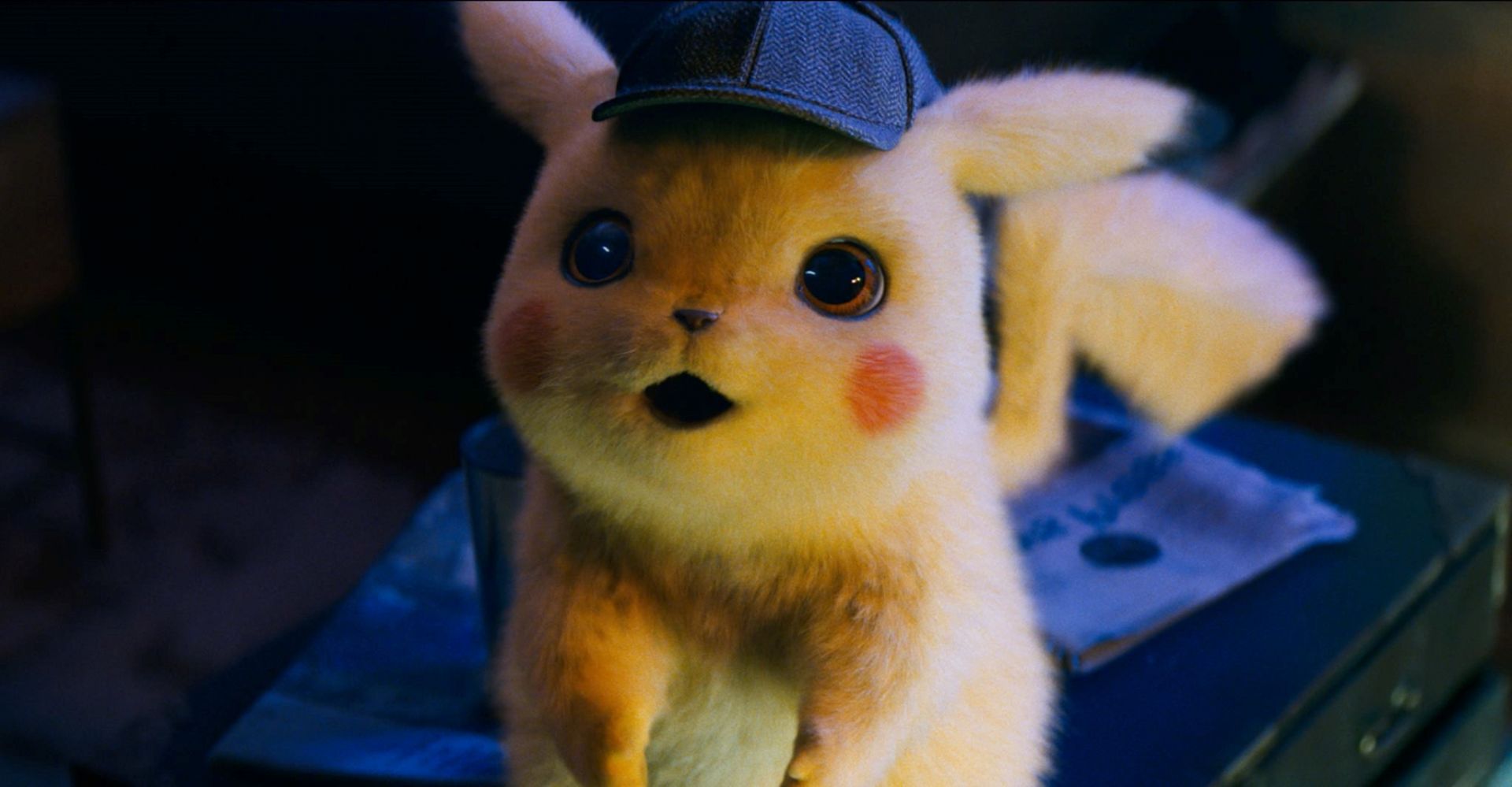The film Pokémon: Detective Pikachu (PG) opens this weekend. It’s based on the video game and trading card series popular among children.
Tim Goodman is a young, determined man, living in a world very different from anything you and I have seen.
In Tim’s world, creatures known as Pokémon roam the forests. They are a cross between a stuffed animal and a toy and sometimes as cute as a koala bear.
Tim, though, doesn’t have time to chase Pokémon for fun. He’s on board a train to Ryme City, the only place on the planet where humans and Pokémon co-exist. In Ryme City, every person has a Pokémon—it’s like a pet—and Pokémon even perform valuable tasks (like fighting fires).
Tim’s estranged father lived in Ryme City until recently but died in a tragic car accident. Tim is returning to claim his possessions and tie up loose ends.
But then his father’s Pokémon—a yellow furry fuzzball named Pikachu—latches onto Tim. Even crazier, Tim understands every word Pikachu says.
And then the story grows stranger. Pikachu tells Tim his father isn’t dead and that he may have been captured by an evil group that’s trying to destroy Ryme City and the Pokémon, too.
Can Pikachu and Tim find his father and perhaps also stop this deadly scheme?
The film Pokémon: Detective Pikachu (PG) opens this weekend, starring Justice Smith (Jurassic World: Fallen Kingdom) as Tim, Ryan Reynolds (Deadpool, X-Men Origins: Wolverine) as Pikachu and Kathryn Newton (Three Billboards Outside Ebbing, Missouri) as Lucy, a young woman who works at a television station and helps Tim break the case.
The film is a mixture of live action and CGI and based on the video game and trading card series popular among children. Both have sparked controversy among Christian families for their inclusion of magic and Eastern spirituality.
In Pokémon Detective Pikachu, though, we get a worldview not much different than what’s found in Marvel and Star Wars film. There’s no occult-like magic. Instead, it’s a few animals with superhero-like powers.
But even if we give Detective Pikachu a pass on the worldview question, it has content that pushes the boundaries for a PG film aimed at small children. It has more violence and disturbing content than what is seen in PG flicks like the Lego Movie or Despicable Me series. It has more language than what is found in most children’s films, too. It left me wondering: What is the target audience?
The plot, though, is interesting, and the story has enough twists and turns to keep moviegoers interested. I—surprisingly—enjoyed it.
But is it OK for children? Let’s take a look.
Warning: minor/moderate spoilers!
(Scale key: none, minimal, moderate, extreme)
Violence/Disturbing
Moderate. The film opens with a scene showing a freakish alien-like creature escaping a laboratory. Seconds later, a car crashes, apparently killing the occupant. Several friendly Pokémon inhale a gas that causes them to turn evil and mean. They chase Tim at night in a scene reminiscent of Gremlins. Tim, in his investigation, corners a mime and pretends to torture him by pouring gas on him and lighting a match. We see a Pokémon MMA-type battle between a fire-breathing dragon and Pikachu. We experience several Jurassic Park-type jump scenes when Tim and Lucy break into a laboratory. Tim and Lucy are nearly killed when the mountains and land fold in half in a science fiction-type scene. A Ryme City parade goes haywire when the Pokémon breathe a purple gas and turn evil (The gas causes the souls of the humans to enter the Pokémon).
Sexuality/Sensuality/Nudity
Minimal. Pikachu makes several jokes with double meaning. He tells Tim as they enter the apartment: “I never do this. I’m not that type of Pokémon.” He tells Tim to “grow some berries.” Tim says he’s attracted to Lucy.
Coarse Language
Minimal. But still too much for a children’s film. OMG (3), h-ll (2), d–n (1). We also hear an unfinished “holy sh–,” “nipples,” “geez” and “shove it.”
Other Stuff You Might Want To Know
Moviegoers will either love Pikachu’s sarcasm or hate it.
We also hear about “Pokémon evolution.”
Life Lessons
Detective Pikachu delivers lessons on regret (Tim and his father), parental love (Tim’s father), and second chances (Tim). We also learn that looks can be deceiving (several characters who aren’t what they seem).
Worldview/Application
We never learn how the Pokémon get their powers. Apparently, they’re born that way.
Yet the best message from Detective Pikachu is about family. Tim’s mother died when he was younger, forcing him to make a choice between living with his grandmother or father. He chose the former. But when he arrives in Ryme City, he has regret. He finds an unmailed card from his father with a loving note (“I can do better if you give me a chance”). The more he learns about his dad, the more he wishes he could go back in time and make a different decision. And when he learns that his father may still be alive, he sets out to find his dad—and perhaps get that second chance in life.
Sponsors
Burger King. Pillsbury. 7-Eleven. Menchie’s Frozen Yogurt. Delta.
What Works
The fatherhood angle. The chemistry between Tim and Pikachu.
What Doesn’t
The adult-centric double-meaning jokes. The language. It’s a kid’s movie. Keep it that way.
Discussion Questions
1. Have you ever wanted a second chance at something?
2. Why did Tim have regret?
3. What unique qualities can a father provide that a mother or grandmother cannot?
4. What do you think about the debate about Pokémon?
Entertainment rating: 3 out of 5 stars. Family-friendly rating: 3.5 out of 5 stars.
Rated PG for action/peril, some rude and suggestive humor, and thematic elements.
Photo credit: Warner Bros.
